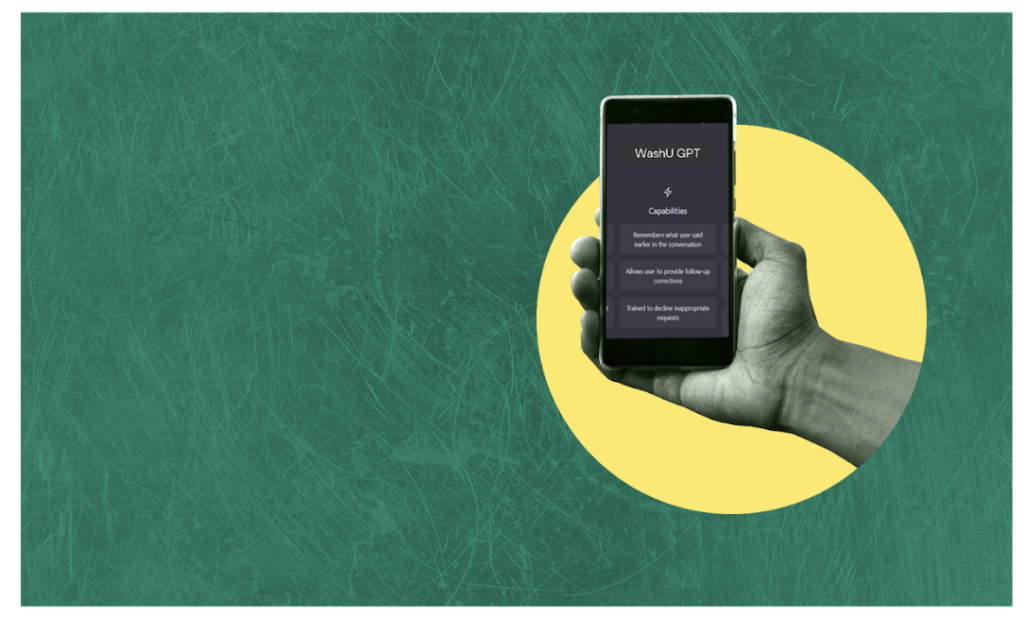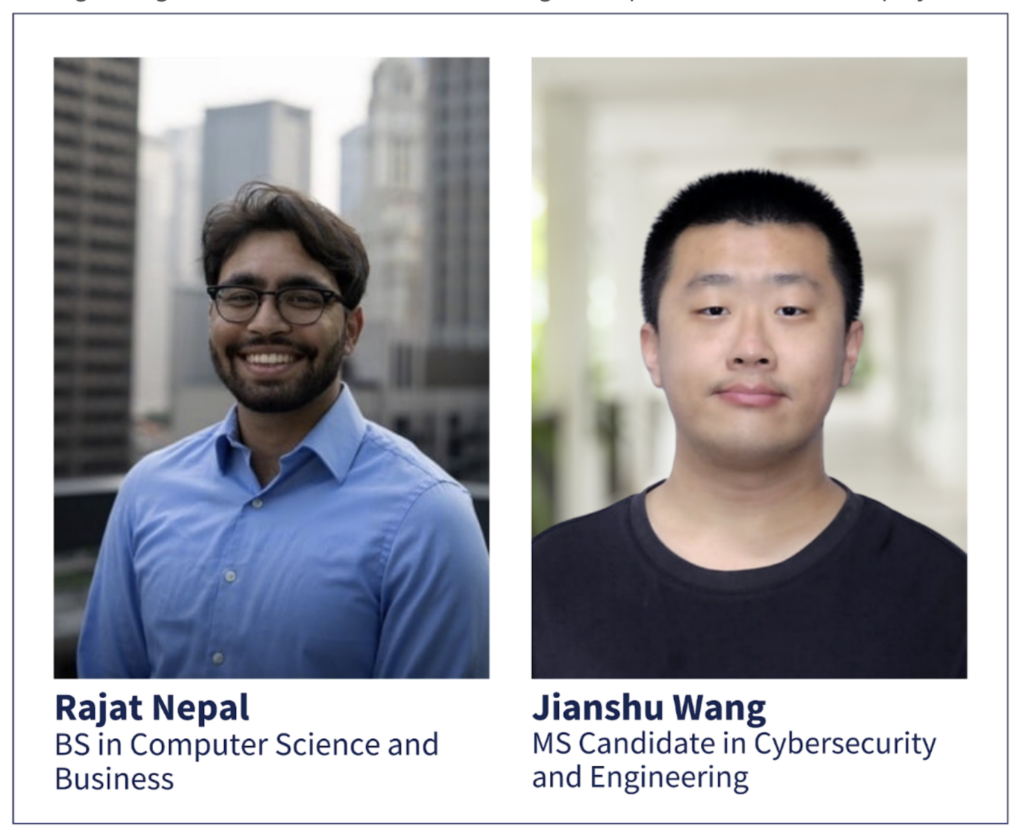
In 2016, the IT Director Dr. Sherry Holmes launched DevSTAC program, an interdisciplinary group of student employees who can be hired to develop and integrate emerging technology to satisfy the client’s needs, in hopes of bridging the gap between the academics in real-life work experience in technology for students. The DevSTAC members found the program to be highly valuable in providing opportunities for them to apply their academic knowledge in a work setting while working on their most recent project, WashU GPT Test Report.
In this project, a few of DevSTAC student employees gathered to put together a report for the CIO’s office that evaluated the current Washington University GPT Model under the support and guidance of the IT Project Manager, Qasim Hayat. They investigated security analysis, quantitative/qualitative testing, code generation capabilities, stress testing, and comparative analysis to provide a comprehensive diagnosis and recommendations for the model.
Rajat, a recent graduate from WashU’s dual degree program in Computer Science and Business, found himself at the forefront of documentation efforts for the GPT Test. Courses like Management Communications (MGT 201) and Technical Writing (Engineering 301) equipped Rajat with the essential skills for crafting comprehensive business reports. Leveraging Microsoft Word’s built-in tools and formats, Rajat seamlessly merged his CS and business knowledge, creating a bridge between the technical and managerial aspects of his role on this project.

Rajat emphasized the intersection of his majors, explaining, “being a CS and business double major allowed me to find the sweet spot where the technical and business aspects align. This was crucial in the project, especially when dealing with quantitative testing.” His academic background allowed him to summarize the technical findings into a professional report, serving as a liaison between the realm of business and technology. Further armed with insights gained from his past internships and exposure to industry standards, Rajat brought a unique blend of classroom learning and practical experience to the table. His ability to navigate both realms enhanced the quality and depth of the project.
Reflecting on his experience, Rajat noted, “Generative AI is an up-and-coming invaluable skill set. So I was very excited to work with it on this project. We’re always looking at new and emerging cutting-edge technologies in DevSTAC. It’s really nice that we are able to experience and examine the state of our technology, including AI and be able to use it in a professional setting. It keeps us up to date with current technology and trends. It allows us to directly work with mobile app development and other machine learning algorithms that internships and class settings may not let us do. DevSTAC has helped me hone my skills and made myself more marketable, and it has been a very fun journey.”
On the other hand, Jianshu, a Master’s student in Cybersecurity and Engineering, expected to graduate in May 2025, heavily worked on the technical aspect of the project. His role focused on leading the development and implementation of automated testing software.
Jianshu’s journey highlighted the application of classroom experiences in a professional setting. He drew connections between his computer science and engineering background and the demands of the software industry. The automated testing software he developed allowed for efficient testing of thousands of queries simultaneously, surpassing the limitations of manual, one-query-at-a-time approaches.
Collaboration played a crucial role in this project. DevSTAC members, much like those in a university setting, exchanged skill sets and combined their strengths to tackle complex problems. Jianshu emphasized, “in the beginning, communication was a bit challenging, but we learned to navigate through different skill sets. It was about forming approaches to problems, something that’s not always apparent and requires creative thinking. Overall, teamwork was vital in this project. It mirrored the professional setting, adding another layer to our skill set while preparing us for collaborative endeavors in the industry.”
As these two DevSTAC members continue to navigate their professional journeys, their experiences at DevSTAC serve as a testament to the value of interdisciplinary education, collaborative teamwork, and the integration of cutting-edge technologies in real-world settings.